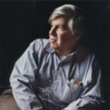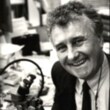Life ascending : the ten great inventions of evolution
(Book)
Author
Published
New York : Norton, 2009.
Status
Central - Adult Nonfiction
576.8 LANE
2 available
576.8 LANE
2 available
Copies
| Location | Call Number | Status |
|---|---|---|
| Central - Adult Nonfiction | 576.8 LANE | Available |
| Central - Adult Nonfiction | 576.8 LANE | Available |
Description
How did life invent itself? Where did DNA come from? How did consciousness develop? Powerful new research methods are providing vivid insights into the makeup of life. Comparing gene sequences, examining atomic structures of proteins, and looking into the geochemistry of rocks have helped explain evolution in more detail than ever before. Nick Lane expertly reconstructs the history of life by describing the ten greatest inventions of evolution (including DNA, photosynthesis, sex, and sight), based on their historical impact, role in organisms today, and relevance to current controversies. Who would have guessed that eyes started off as light-sensitive spots used to calibrate photosynthesis in algae? Or that DNA’s building blocks form spontaneously in hydrothermal vents? Lane gives a gripping, lucid account of nature’s ingenuity, and the result is a work of essential reading for anyone who has ever pondered or questioned the science underlying evolution’s greatest gifts to man.
More Details
Format
Book
Edition
First American edition.
Physical Desc
344 pages : illustrations ; 24 cm
Language
English
ISBN
9780393065961, 0393065960
Notes
Bibliography
Includes bibliographical references and index.
Similar Titles From NoveList
NoveList provides detailed suggestions for titles you might like if you enjoyed this book. Suggestions are based on recommendations from librarians and other contributors.
What's gotten into you: the story of your body's atoms, from the Big Bang through last night's dinner - Levitt, Dan
These books have the genre "science writing -- biology"; and the subjects "evolution," "biology," and "science."
These books have the genres "science writing -- biology" and "adult books for young adults"; and the subjects "evolution" and "biology."
The science of why we exist: a history of the universe from the big bang to consciousness - Coulson, Tim
These books have the genre "science writing -- biology"; and the subjects "evolution," "biology," and "life (biology)."
These books have the genres "science writing -- biology" and "adult books for young adults"; and the subjects "evolution," "biology," and "human evolution."
These books have the genre "science writing -- biology"; and the subjects "evolution" and "biology."
These books have the genres "science writing -- biology" and "adult books for young adults"; and the subjects "biology" and "science."
These books have the genre "science writing -- biology"; and the subjects "evolution," "biology," and "molecular biology."
These books have the genre "science writing -- biology"; and the subjects "evolution," "molecular evolution," and "biology."
These books have the genre "science writing -- biology"; and the subjects "evolution," "biology," and "natural selection."
So simple a beginning: how four physical principles shape our living world - Parthasarathy, Raghuveer
These books have the genre "science writing -- biology"; and the subjects "molecular evolution" and "biology."
These books have the genre "science writing -- biology"; and the subjects "evolution," "biology," and "human evolution."
The evolution of imperfection: the science of why we aren't and can't be perfect - Hurst, Laurence D
These books have the genre "science writing -- biology"; and the subjects "evolution," "biology," and "human genome."
Similar Authors From NoveList
NoveList provides detailed suggestions for other authors you might want to read if you enjoyed this book. Suggestions are based on recommendations from librarians and other contributors.
These authors' works have the subjects "evolution," "biology," and "cells."
These authors' works have the subjects "evolution," "biology," and "molecular evolution."
These authors' works have the appeal factors scholarly and comprehensive, and they have the subjects "evolution," "biology," and "molecular evolution."
These authors' works have the appeal factors comprehensive, and they have the subjects "evolution," "biology," and "energy metabolism."
These authors' works have the appeal factors well-researched, and they have the genre "science writing"; and the subjects "biology," "science," and "biochemistry."
These authors' works have the subjects "evolution," "biology," and "molecular evolution."
These authors' works have the appeal factors scholarly, and they have the subjects "evolution," "biology," and "life."
These authors' works have the genre "science writing"; and the subjects "biology" and "biochemistry."
These authors' works have the genre "science writing"; and the subjects "biology," "biochemistry," and "life (biology)."
These authors' works have the genre "science writing"; and the subjects "evolution," "biology," and "science."
These authors' works have the genre "science writing"; and the subjects "biology," "biochemistry," and "chemistry."
These authors' works have the appeal factors scholarly and comprehensive, and they have the genre "science writing"; and the subjects "evolution," "biology," and "biochemistry."
Reviews from GoodReads
Loading GoodReads Reviews.
Citations
APA Citation, 7th Edition (style guide)
Lane, N. (2009). Life ascending: the ten great inventions of evolution (First American edition.). Norton.
Chicago / Turabian - Author Date Citation, 17th Edition (style guide)Lane, Nick. 2009. Life Ascending: The Ten Great Inventions of Evolution. New York: Norton.
Chicago / Turabian - Humanities (Notes and Bibliography) Citation, 17th Edition (style guide)Lane, Nick. Life Ascending: The Ten Great Inventions of Evolution New York: Norton, 2009.
Harvard Citation (style guide)Lane, N. (2009). Life ascending: the ten great inventions of evolution. First American edn. New York: Norton.
MLA Citation, 9th Edition (style guide)Lane, Nick. Life Ascending: The Ten Great Inventions of Evolution First American edition., Norton, 2009.
Note! Citations contain only title, author, edition, publisher, and year published. Citations should be used as a guideline and should be double checked for accuracy. Citation formats are based on standards as of August 2021.
Staff View
Loading Staff View.


































